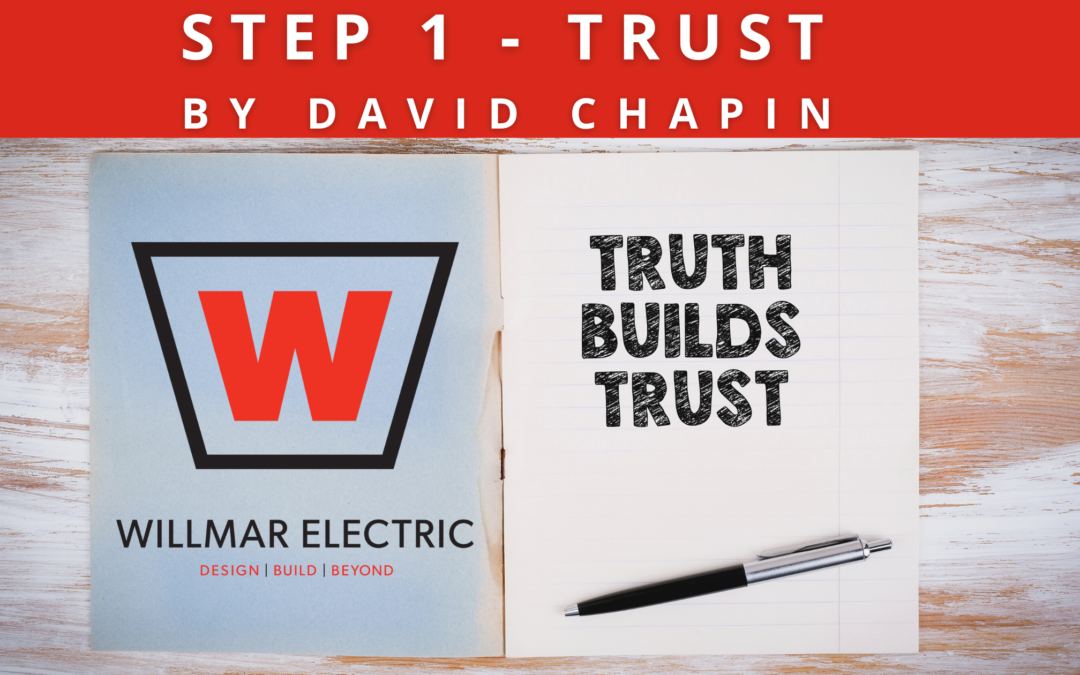Last month I blogged about productive confrontation. I outlined a five-step process needed in any feedback loop.
Of course, how you give feedback makes all the difference in the world. So, I came up with a 5 step process. I hope I’m not plagiarizing. But if you recognize my list and think I should give credit to somebody, please let me know. I would like to expand on each step.
The first step is trust. If you need to bring up an issue with somebody and don’t have mutual trust, the confrontation will not go well.
Patrick Lencioni puts trust as the base of his pyramid in “The Five Dysfunctions of a Team.” Trust is the foundation of a strong team. It is also the foundation of a strong relationship.
If you have ever been told something but somebody only to have the same information prove false, later you lose trust in the person who initially gave you the information. Especially if you found out the information was false by using it in public or used it to make a decision that turned out poorly.
In the construction business, we rely on people finishing their portion of a project on time so we can get our work done. If somebody says they will be finished by a specific time, we count on it being done on time. If they let us down, we stop trusting them. Friedrich Nietzche is quoted as saying, “I’m not upset that you lied to me, I’m upset that from now on I can’t believe you.” It can be a crushing blow when you learn somebody isn’t trustworthy. I find it is the end of the relationship.
Of course, the reverse is also true. I have come to trust some people because they are so dependable. For example, within Willmar Electric, if somebody is even one second late to a meeting, I trust they aren’t coming because people so seldom show up late to meetings. Author Stephen Covey says, “trust is the glue of life. It’s the most essential ingredient in effective communication.” It’s the foundational principle that holds all relationships.” Joyce Brothers take trust to an even higher level when she says, “The best proof of love is trust.”
Trust is a learned behavior. Over time our trust in others grows as they prove to us they are trustworthy. Author John C Maxwell says, “When you make a commitment, you create hope. When you keep a commitment, you create trust.”
As we all know, trust is a two-way street. Abraham Lincoln said it best when he said, “people, when rightly and fully trusted, will return the trust.”
The people I trust the most in life are the people I love the most. So, I completely trust my family. My wife, parents, and children are 100% trustworthy. Author Simon Sinek says, “Trust is built on telling the truth, not telling people what they want to hear.” If you know my family, you know our trust builds on telling each other the truth, not what we want to hear.
Untrustworthy people tend not to trust others. Joseph Stalin, a man who had millions of his fellow Russians killed, said, “I trust no one, not even myself.” Glad I wasn’t in the room when he said it. I would have been tempted to say, “thanks for the tip. I’ll keep that in mind in our future interactions.” I’m sure his next step would have been to send me to Siberia. Benito Mussolini said, “It’s good to trust others but, not to do so is much better.” But, of course, he was working hand in hand with Adolf Hitler, so having trust issues was understandable.
I’ve quoted a lot of people in this article. But, I want to end with one last quote I think sums things up pretty well.
“If people like you, they’ll listen to you, but if they trust you, they’ll do business with you.” – Zig Ziglar
You can’t have a solid professional or personal relationship unless you trust the other person and return the same trust level. So be trustworthy and trust others, and you will be headed in the right direction. If you can’t trust the people around you, you should hang out with different people.
In the next few days, I will follow up on respect, self-awareness, focus, and solution. In my opinion, those four things join with trust in making up the five keys to a productive confrontation. We don’t need to seek out confrontation in the workplace, but we can’t run from confrontation once we move into a leadership role.

